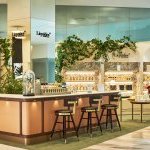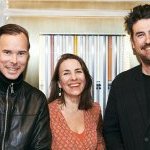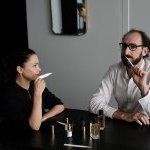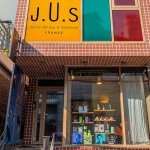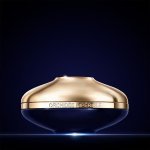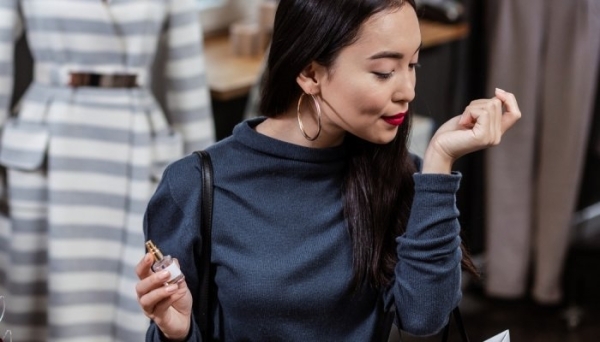
Asia’s interest in perfumes is growing as consumers’ tastes are gaining sophistication. This is a boon for confidential niche brands, whose growth potential in these markets is higher than in more mature markets. Ex Nihilo recently opened four personalised corners at Galleria and Lotte in Seoul, Korea, while Liquides and Jovoy have set up their specialised concept stores in the region. As a key market in Asia, China is of course in the sights of brands. Diptyque, L’Artisan Parfumeur and Le Jardin Retrouvé have all found a receptive audience there.
“Today, Asia is a bit like Russia in the 2000s, when By Kilian was a huge success. Similarly, this strong potential for niche brands can be found there, even if the market is not as accessible,” explains David Frossard, the founder of Liquides and Différentes Latitudes.
It is estimated that 2.5% of people wear perfume in China, a figure to be put in perspective with a population exceeding 1.4 billion people in 2022. “It is a fast-growing market, with huge growth potential. Asia now accounts for 50% of global luxury sales. If China remains a key but still complex market, South Korea on the contrary is a captivating country, a trendsetter, with high purchasing power,” explains Jean-Baptiste Roux, President, and co-founder of J.U.S, which opened its first corner store in the Lotte department store, in Seoul, last March.
“With a strong craze for beauty, Korea is a key market to access Asia,” says Benoît Verdier, co-founder of Ex Nihilo. The brand is also present in Taiwan, with five POS and its own store. “It’s a more mature country, where prestige perfumes are appreciated, with a sophisticated clientele that travels a lot and has a very good standard of living,” says the founder. He believes that Korea and Taiwan are two strategic countries for expanding in Asia, because “Chinese people pay a lot of attention to them.”
The Chinese pole of attraction
The Chinese market, of course, remains more coveted. Far from stereotypes, China has a fresh look on niche perfumery, with “enthusiastic consumers, curious and fond of novelties“, explains Florence Bernardin, founder and manager of Asia Cosme Lab. Less aware of brand hierarchies, Chinese consumers are less “formatted”, an opportunity for designers who can enjoy real freedom of tone.
Apart from novelty, Ex Nihilo is focusing on authenticity, service and personalization to appeal to Chinese consumers. “Consumers are ready to pay the price to have a rare and exclusive product. It’s a younger consumer base, with more purchasing power than their elders, who want to assert themselves by breaking the codes,” explains Sylvie Loday, co-founder and CEO of the brand.
“Even if China’s appeal for perfume were to remain a niche, it would still be four times greater than other markets,” says Philippe Solas, co-founder of Une Nuit Nomade. “At a time when Russian, American, and European markets are experiencing difficulties, and the Middle East is a bit saturated, the Asian continent is synonymous with power and stability,” he continues.
A promising but complex market
Less difficult to penetrate than China, South Korea also suffered from strict confinement measures for two years. “In this country, duty-free sales used to be very strong, but this trend was stopped along with Covid, and the end of tourist stops, while this practice represented 70% of brands’ sales. The question is whether this ecosystem will return to normal or evolve into a new form,” points out Sylvie Loday.
“But it is also one of the richest countries in the world, where there are no cultural barriers, and where a curious public enjoys consuming and exposing itself,” explains David Frossard. A perfect setting for establishing the concept of Liquides in Seoul. Located in the golden triangle of Cheongdam, near the Dior and Vuitton boutiques, the “perfume bar” was created thanks to a partnership with the Hyundaï Group. It is also available in the form of seven shop-in-shop concepts in the Group’s department stores and distributes brands such as BDK, Frapin, Obvious, and Carine Roitfeld.
Meanwhile, China is increasing the number of obstacles to accessing its market. “One of the main barriers to setting up a business is the registration formalities, which are costly and tedious,” notes Jean-Baptiste Roux. “This prerequisite, which can take almost a year, and cost 1,500 to 2,000 euros per product, has fortunately become more flexible since tests on animals are no longer compulsory,” he continues.
Apart from the administrative burden, “it is a highly prized market for large groups, who spend huge amounts of money on rent, animations, and events. As a matter of fact, everything is expensive,” adds Sylvie Loday.
Another major difficulty is understanding the Chinese market ecosystem and knowing how to adjust its communication. “It is crucial to propose a targeted storytelling, thought out beforehand, before establishing. A brand cannot simply think it will be enough to enter this market by imposing its vision of French luxury,” insists Philippe Solas. “It is a customer base unlike no other, which is self-sufficient from a digital point of view, and whose social networks must be conquered locally,” analyses Benoît Verdier.
Several outreach strategies for China
To deal with the time-consuming formalities specific to the Chinese market, some brands resort to cross-border methods, like J.U.S or the brands sold by Liquides. “Chinese consumers buy a lot online (50%), so we ship our products from France or a free zone, which allows us to sell and promote the brand,” explains Jean-Baptiste Roux.
Others favour a longer-term strategy. “You have to start from scratch to set up in China,” analyses Sylvie Loday. “Online sales are very popular, like on sites such as Tmall. It’s a tempting way in, but it’s also a dangerous one, as it relies on numerous promotions and discounts. In the end, this can weaken the brand, because this customer base is very volatile. The use of digital marketing is of course impossible to avoid, but it is essential to combine it with a physical presence. You have to take the time to develop the brand in this new market, even if it means favouring neighbouring countries,” adds the CEO of Ex Nihilo.
This is a long-winded task that, according to Philippe Solas, also requires working with the right partner to get to grips with the specifics of the Chinese market. After an upstream analysis of the codes of the Chinese community, the brand Une Nuit Nomade recently sealed a partnership with the Centdegrès Agency to support its development. The brand has adopted a Chinese name that reflects its philosophy to align its communication with the Chinese market. The storytelling of some references has also been reworked. “The nationalistic component in Chinese business is very important, and the community could very well, in the long term, focus solely on local brands. Hence the importance of having discourse and visuals adapted to its culture, thanks in particular to the expertise of an agency like Centdegrès,” analyses the head of Une Nuit Nomade.
Diptyque has successfully established itself in China over the long term, after opening its first outlet in 2014. The brand has managed to make its mark by enhancing its know-how and enriching its offer with details adapted to the local culture, without abandoning its identity. Just like L’Artisan Parfumeur, which has based its success in China on limited editions for the Chinese New Year.
While the complexity of a market such as China can be a hindrance, other Asian countries offer good prospects. This is the case of Japan, which is very attractive according to David Frossard, because its customers – who have long been considered as not very receptive to perfume – are fond of trendy and creative concepts, and therefore very open to alternative brands. To be continued.
Portfolio
